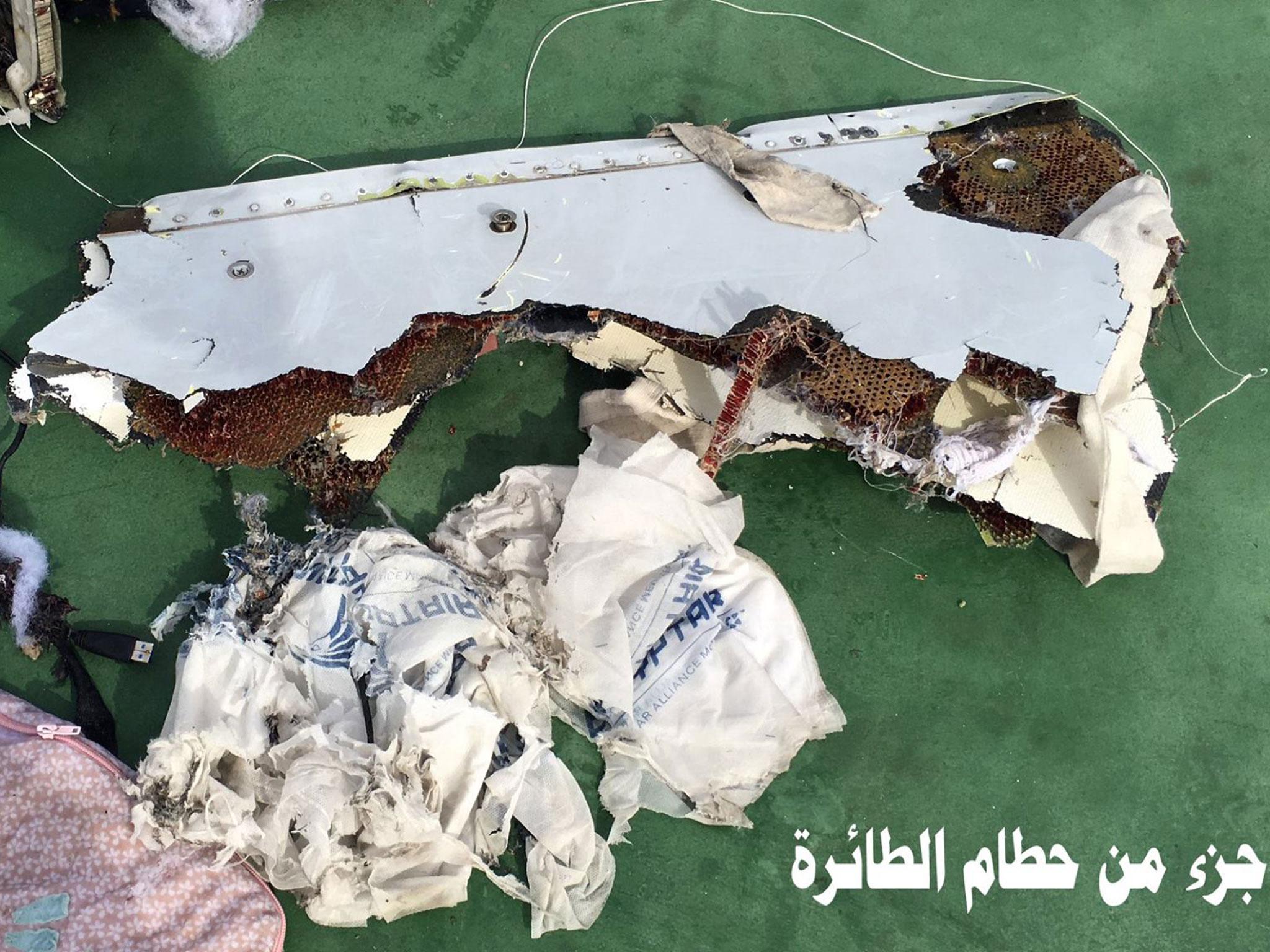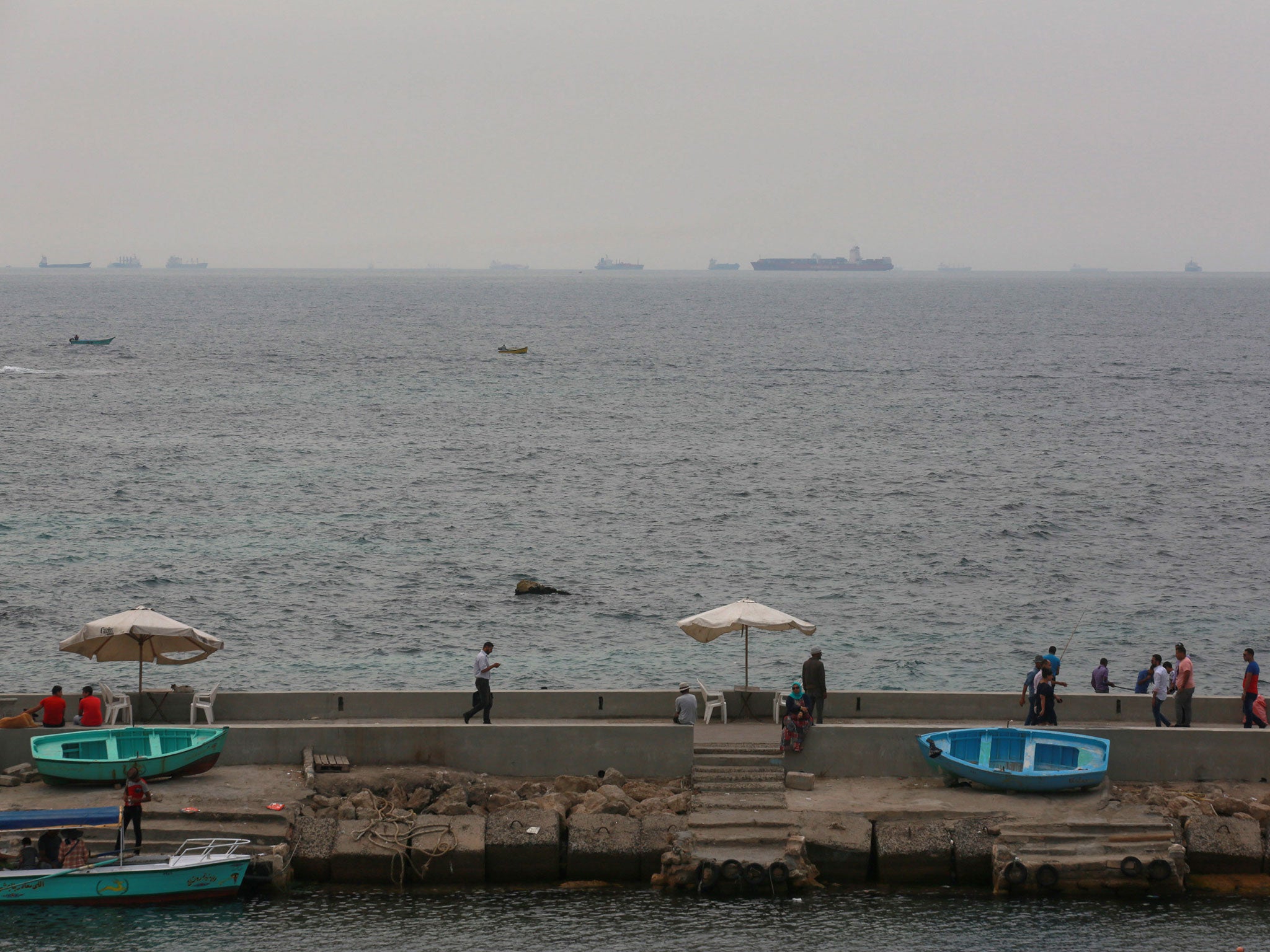EgyptAir crash: Remains retrieved from flight MS804 crash site 'point to an explosion on board aircraft'
The head of Egypt's forensics authority has dismissed the comments as ‘mere assumptions’

Your support helps us to tell the story
From reproductive rights to climate change to Big Tech, The Independent is on the ground when the story is developing. Whether it's investigating the financials of Elon Musk's pro-Trump PAC or producing our latest documentary, 'The A Word', which shines a light on the American women fighting for reproductive rights, we know how important it is to parse out the facts from the messaging.
At such a critical moment in US history, we need reporters on the ground. Your donation allows us to keep sending journalists to speak to both sides of the story.
The Independent is trusted by Americans across the entire political spectrum. And unlike many other quality news outlets, we choose not to lock Americans out of our reporting and analysis with paywalls. We believe quality journalism should be available to everyone, paid for by those who can afford it.
Your support makes all the difference.A forensics official has said human remains retrieved from the area where EgyptAir flight 804 crashed point to an explosion on board.
The anonymous official is part of Egypt's investigative team and has examined victims' remains at a morgue in Cairo.
He told the Associated Press that all 80 body parts retrieved so far are small and that “there isn't even a whole body part, like an arm or a head", adding: “The logical explanation is that an explosion brought it down...but I cannot say what caused the blast."
Egypt's al-Watan newspaper quoted another unnamed forensics official as saying the plane blew up in mid-air, leaving remains “no larger than the size of a hand”, but that it has yet to be determined whether an explosive device was to blame.
The head of Egypt's forensics authority denied there was evidence of an explosion later on Tuesday.
“Everything published about this matter is completely false, and mere assumptions that did not come from the forensics authority,” Dr Hisham Abdel Hamid said in a statement quoted by Mena news agency.
EgyptAir said relatives of the victims were giving DNA samples to forensics officials and investigators in the hope of identifying their loved ones.
There has been no confirmed cause of the disaster, which killed all 66 passengers and crew on board the flight on its journey from Paris to Cairo.
Automatic messages sent in the minutes before the plane disappeared from radar in the early hours of Thursday morning appeared to indicate problems with the cockpit windows, autopilot and the flight control system, and smoke on board.
Body parts, luggage and passengers' belongings have been recovered alongside wreckage from the aircraft during searches of the Mediterranean Sea.
But the location of the main body of the Airbus A230, complete with its “black boxes” and their vital data, remains unknown.
Phil Giles, a former air safety investigator who worked on the Lockerbie Bombing case, told The Independent that images of wreckage published on Saturday added to mounting indications the plane broke up mid-air.
“All the evidence so far, including the pictures, indicates that the aircraft broke up at altitude rather than when it impacted the sea,” he said.
“Aircraft do infrequently break up as a function of severe weather; however, this wasn't a factor in this accident.
“Modern aircraft such as the A320 don't have a habit of suffering major structural failure unless there is some external factor like a BUK missile as in the case of MH17, or an internal device.

Mr Giles said he favoured the latter explanation, meaning a bomb may have been planted on board, but needed more evidence.
Claims by Greece's defence minister that the plane swerved and rapidly lost altitude before it disappeared from radar have been challenged by an Egpytian official.
Egyptian authorities previously said they believed terrorism was a more likely explanation than equipment failure but so far no hard evidence has emerged and no group has claimed responsibility.
Ships and planes from Britain, Cyprus, France, Greece and the United States are taking part in the search for the debris from the aircraft, including a French vessel equipped with sonar.
The search area is roughly halfway between Egypt's coastal city of Alexandria and the Greek island of Crete, where the water is 8,000 to 10,000 feet deep.
Join our commenting forum
Join thought-provoking conversations, follow other Independent readers and see their replies
Comments